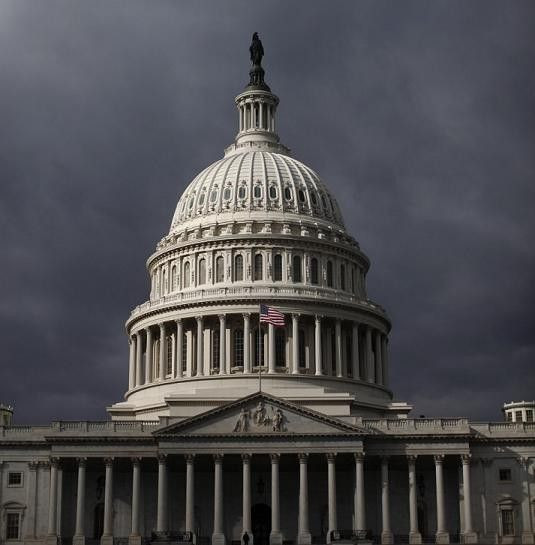Congress Now Working on 2 Debt Deals - 1 Big, 1 Small

Analysis
Sunday's Day 8 of the debt deal talks saw both sides express confidence that a grand bargain deficit reduction package would be reached, even as a parallel camp of lawmakers worked on a last-chance option that would feature a more-modest reduction, in event the grand bargain can not be achieved.
However, there was little evidence Sunday that any deal was at hand, The New York Times reported Sunday night.
House Republicans reiterated that they plan to vote on their own legislation this week -- known as the Cut, Cap, Balance Act -- that would cut federal spending by more than $100 billion in fiscal 2012, cap future annual spending at a level equal to 18 percent of U.S. GDP, and would prohibit raising the debt limit unless Congress sends to the states a proposed balanced-budget constitutional amendment.
That GOP plan is considered 'dead on arrival' in the Senate, where Democrats hold a majority and will not support a cap on federal spending at 18 percent. Federal spending has averaged 20 percent of U.S. GDP for decades, and will likely rise as Medicare service costs increase with the retirement of the Baby Boom generation.
In addition, on Sunday U.S. Sen. Richard Durbin, D-Ill., supported President Barack Obama's proposal to cut $4 trillion from federal spending in the next 10 years, while U.S. Sen. Tom Coburn,R-Oak., said on CBS's Face the Nation he planned to offer a plan that will contain as much as $9 trillion in cuts.
At the same time, worked continued Sunday on a minimalist 'last-chance' option being brokered by Sen. Majority Leader Harry Reid, D-Nev., and Senate Minority Leader Mitch McConnell, R-Ky., Bloomberg News reported Sunday.
The complex proposal would let the president increase the debt limit by $2.5 trillion by the end of 2012, provide a veto is not overriding in the House and Senate. The measure could come to the Senate floor as early as Wednesday.
Meanwhile, another financial/economic community professional said a U.S. Government default would cause panic throughout the financial system.
It seem to me an unthinkable financial risk to take, former U.S. Treasury Secretary Lawrence Summers told CNN Sunday.
And all the while, the clock continued to tick Sunday toward the August 2 deadline when the U.S. Government runs out of both money and borrowing authority. If the U.S. Government defaults, the nation's credit rating would be downgraded --- rating agency's S&P and Moody's have warned about this -- the U.S. Treasury would not be able to borrow money, and government payments to senior citizens on Social Security and to other payment recipients would likely stop.
In addition, U.S. Federal Reserve Chairman Ben Bernanke, in Capitol Hill testimony last week, underscored that a default would trigger a huge financial calamity, adding that it would send a financial shockwave throughout the global financial system.
Bernanke said U.S. Government bonds are considered the lowest-risk bond investment class in the world, and serve as a benchmark for interest rates for other, more-risky bond and asset classes. If investors can't count on the safety of U.S. debt, they would ask for higher interest on that asset class, pushing up the interest rates on other assets, among other ripple effects, he said.
Political/Public Policy Analysis: On Day 8 of the debt deal impasse, both sides either: a) put the rhetoric on hold for a day or b) genuinely took a look at the situation and decided to step back from the abyss. It's difficult to gauge which one it is, as during this crisis both sides seemed to have set new Washington lows in acrimony and characterization of other side's stance as untenable.
Moreover, because the crisis has created more than one 'false-signal' regarding a deal, and under the thesis of 'fool me once, shame on you, fool me twice, shame on me,' we're keeping the risk barometer, on a scale of 0 to 100 percent, of the likelihood of a U.S. Government default at 40 percent heading into Monday, the same percent level as Sunday.
© Copyright IBTimes 2025. All rights reserved.





















